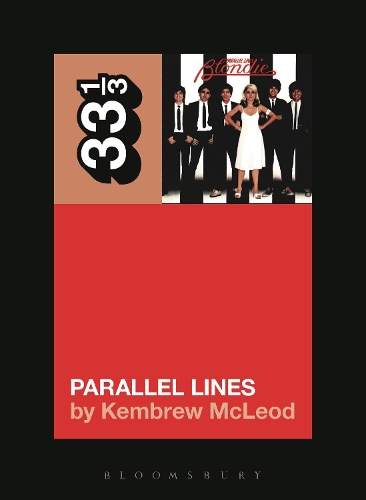
Blondie's Parallel Lines
(Paperback)
Publishing Details
Blondie's Parallel Lines
By (Author) Kembrew McLeod
Bloomsbury Publishing PLC
Bloomsbury Academic USA
24th March 2016
24th March 2016
United States
Classifications
General
Non Fiction
Musicians, singers, bands and groups
Composers and songwriters
782.421660922
Physical Properties
Paperback
168
Width 120mm, Height 164mm, Spine 10mm
140g
Description
Blondies Parallel Lines mixed punk, disco and radio-friendly FM rock with nostalgic influences from 1960s pop and girl group hits. This 1978 album kept one foot planted firmly in the past while remaining quite forward-looking, an impulse that can be heard in its electronic dance music hit Heart of Glass. Bubblegum music maven Mike Chapman produced Parallel Lines, which was the first massive hit by a group from the CBGB punk underworld. By embracing the diversity of New York Citys varied music scenes, Blondie embodied many of the tensions that played out at the time between fans of disco, punk, pop and mainstream rock. Debbie Harrys campy glamor and sassy snarl shook up the rocknroll boys club during a growing backlash against the womens and gay liberation movements, which helped fuel the disco sucks battle cry in the late 1970s. Despite discos roots in a queer, black and Latino underground scene that began in downtown New York, punk is usually celebrated by critics and scholars as the quintessential subculture. This book challenges the conventional wisdom that dismissed disco as fluffy prefab schlock while also recuperating punks unhip pop influences, revealing how these two genres were more closely connected than most people assume. Even Blondies album title, Parallel Lines, evokes the parallel development of punk and discoalong with their eventual crossover into the mainstream.
Reviews
Its a rare treat when an author busts out a tightly researched agenda that totally flips your perspective on a record, a band, a scene, a genre, and an entire artistic era. Kembrew McLeod provides such a treat with this gloriously revisionist history, positing that Blondie and the core of the New York punk scenes early bands and aesthetics were a product of a wildly vital gay underground theater scene that flourished from the late 1960s to the early 1970s. * MTV News *
A neat snapshot of a time of revolution, reinvention and experimentation ... [This book is] every bit as appetising as the album itself, and an astute, erudite examination of one of the greatest albums of all time. * Record Collector *
An interesting thesis well made in this enjoyable addition to the 33 1/3 series. * International Times *
Theres a little book Ive been devouring on the subway this past week or two: Blondies Parallel Lines by Kembrew McLeod. It has had me tracing and re-tracing connections all over the place, re-examining my own assumptions about my own evolving musical tastes and cultural assumptions from the time of my first transistor radio ... Refreshing. * One Flew East *
Nothing beats a great argument that makes you think of the album in question in a whole new light, then of course sends you right back to the music to love it all over again ... Parallel Lines the book is worth reading if youre a devotee of Blondie or the 33 1/3 series (and of course for fans of both already) but if, somehow, youve never experienced this record in your lifetime and havent yet read any of the other entries into this set of snapshots of classic albums, McLeods book might instantly, easily, make you a fan of both. * Off The Tracks *
The publisher Bloomsbury cannot be praised highly enough for the 33 1/3 series ... This volume houses countless surprising details ... [and] McLeod writes so informatively and with such inspiration that one cannot dismiss Parallel Lines or any of the other similar music covered in the book. * CulturMag (Bloomsbury translation) *
[Blondie's] Parallel Lines ... gives a good critical insight into how record labels have worked up until the present day ... the whole thing reads very well. * OX Fanzine (Bloomsbury translation) *
Author Bio
Kembrew McLeod is a Professor of Communication Studies at the University of Iowa, USA. He has published and produced several books and documentaries about music and popular culture.
